This year, in honor of World Bipolar Day, I got some friends together to bust some commonly held myths about bipolar disorder.
💫 Spread the light with Dr Devika B. First-person accounts of living with mental illness that dispel stigma and stereotypes and instead, spread hope and light — also a YouTube channel and podcast on Apple and Spotify
Because stigma festers in the dark and scatters in the light
If you or a loved one needs help for a mental health crisis, don’t hesitate to call or text 988 at anytime — or reach them online here. Find other resources here, search for a US treatment facility here, and find a US-based therapist here.
Here are our truths:
Myself, Dr Devika Bhushan, a pediatrician, public health leader, and equity and health changemaker: You can't tell from the outside who has bipolar disorder.
Major General Gregg Martin, PhD, retired from US Army, grandparent, person with bipolar disorder, affirms: Mental health conditions are physiologically real — and are not due to weakness of character.
Dr. Joanna Jarecki, psychiatrist, parent, and person with bipolar disorder affirms: Parents with bipolar disorder can thrive.
Andy Dunn, entrepreneur, co-founder of Bonobos, author of Burn Rate, parent, and person with bipolar disorder, affirms: Bipolar medications don’t necessarily dull people, and are crucial for him to thrive.
Sara Schley, entrepreneur, activist, author of Brainstorm, parent, grandparent, and person with bipolar disorder, affirms: Many people with bipolar disorder don’t actually experience mania.
Andrea Vassilev, doctoral student in clinical psychology, creator of a program to reduce self-stigma in bipolar disorder (OSSIBD.com), and person with bipolar disorder, affirms: Bipolar is not descriptor or a personality trait that can be used to apply to anybody — but a medical diagnosis.
Dr. Justin Bullock, a physician, researcher, and person with bipolar disorder affirms: Hypomania (or mania or depression) can look different from person to person.
#WorldBipolarDay #WBD #Bipolar #BipolarDisorder #WorldBipolarDay2023 #WBD2023
—
Truth: You can’t tell from the outside who has bipolar disorder
Myth buster: myself, Dr Devika Bhushan — pediatrician, public health leader, parent, immigrant, person with bipolar disorder
In my own case, after publicly sharing my journey with bipolar disorder last year, I was told by many in my life: You don’t act bipolar. I would never have guessed that you have bipolar disorder.
Think about what this means. It means that we have a series of prevailing cultural scripts about what kind of person has bipolar disorder and what kind of person doesn’t, or couldn’t. We might envision a stereotyped someone who is unpredictable; maybe violent; impulsive; untrustworthy; irrational; emotional.
I’m here to tell you that when we’re well treated, people with bipolar disorder are none of those things.
When well-managed, you can’t tell from the outside who has bipolar disorder and who doesn’t. In other words, bipolar disorder doesn’t have a face. When well treated, we look just like anybody else.
Hear more of my perspectives on battling bipolar stigma and stereotypes in this podcast interview with Michael Smerconish.
—
Truth: Mental health conditions are physiologically real — and are not due to weakness of character
Myth buster: Major General Gregg Martin, PhD, retired from US Army, parent, grandparent, person with bipolar disorder
I've been living with bipolar disorder for 20 years, and on the spectrum of manic-depressive illness for decades prior to that.
Mental health conditions are physiologically real, like diabetes. They are not due to weakness of character, moral failings, or lack of willpower.
Battling them is as heroic as battling cancer.
—
Truth: Parents with bipolar disorder can thrive
Myth buster: Dr Joanna Jarecki, psychiatrist, parent, person with bipolar disorder
One of the biggest concerns that I had when I was first diagnosed was that having this condition meant that I wouldn't be able to have my own children and raise a family.
I can happily say that that was not the case.
I have two healthy, happy children, and as a psychiatrist, I have worked with many individuals with bipolar disorder and it is absolutely possible to manage this condition and be a loving and healthy parent.
Are there special considerations? Absolutely. Especially around pregnancy and the postpartum period.
It is critical to have a doctor who is working with you to make sure that medications are optimized and safe for the baby, and also ensuring proper sleep, exercise, and nutrition during that critical period. And of course, the postpartum period can be challenging for any parent. And with a bipolar condition, with the sensitivity to changes in sleep schedule, it's really critical to have a solid plan with your healthcare provider and involve loved ones and other supports to ensure protection of sleep time. And when that plan and supports are in place, it is absolutely possible to navigate that period with health and stability.
And I will say that my children have been the greatest mood-stabilizing force in my life. Kids need a regular schedule, and so keeping my kids on their schedule really helps me stay on track with mine, and that is a foundation for mood stability.
And the great thing is that what keeps my kids healthy and happy is what also keeps me well. So it really becomes a family affair. We all make sure to get the sleep that we need, exercise, nutrition, and love, connection and fun that keeps all of us well. And most importantly, my kids are the greatest source of joy in my life. Such an incredible mood booster and you know, such incredible motivators for working hard to be the healthiest and the best version of myself.
Based on both my personal and professional experience, I can say with confidence that managing bipolar disorder and being a healthy and loving parent is absolutely possible.
—
Truth: Bipolar medications don’t dull me — and in fact, are critical to a full life
Myth buster: Andy Dunn, entrepreneur, co-founder of Bonobos, author of Burn Rate, parent, and person with bipolar disorder
I want to bust the myth that medication necessarily is going to dull you.
I know why that myth exists, because I experienced it. When I was first diagnosed with bipolar I, I was 20 years old. I was prescribed a big pink pill and it numbed me. I went off the meds within six months. And regrettably, I stayed off for 16 years, until it came raging back with a lot of hypomania and depressive episodes in between.
When it did come raging back, it did so in a really bad way. I wrote all about that in Burn Rate, if you’re interested in the details.
I had to commit myself 100% to the reality that I needed to take medication every day.
And that it would take time to figure out the right cocktail, the right dosages, the right medications. It took about six months.
And I can confidently tell you that it doesn't dull me. I feel amazing—and so grateful that these medications exist.
So don't give up. You're going to get there.
—
Truth: Many people with bipolar disorder don’t experience mania
Myth buster: Sara Schley, entrepreneur, activist, author of Brainstorm, parent, grandparent, person with bipolar disorder
The myth that I wanted to dispel is that bipolar equals manic depression. When you hear the term bipolar, what comes to mind? Wild highs, extreme mood swings, irresponsible sprees.
That’s actually articulating just one end of the bipolar spectrum, bipolar I. But now we know that bipolar exists on a spectrum. People with bipolar II brains do not have manic episodes. Instead, we experience a milder elevated state called hypomania, with symptoms like anxiety, irritability, talking/thinking faster, and an inflated sense of self, in addition to depression.
So bipolar disorder can exist without mania — and more often does. In fact, bipolar II is actually about 1.5 times more prevalent than bipolar I.
Depression commonly afflicts people with bipolar II disorder and can be the first kind of bipolar mood episode that presents to a doctor. It looks similar to classic depression (major depressive disorder), so misdiagnosis is rampant.
Up to one of three people who are diagnosed with classic depression may actually be on the bipolar spectrum, with key clues like family history or personal history of mania or hypomania often missed.
The antidepressants usually prescribed for classic depression can lead to hypomania, mania, mixed symptoms, or a worsening course for those with bipolar disorder — with dangerous, even lethal consequences — whereas mood stabilizers (in combination with behavioral treatments) can help lift the depression.
The good news is, people living on the bipolar spectrum — with the right diagnosis, treatments, and wellness practices — can live rich and full lives.
Dr Devika Bhushan and I are working with a fabulous team to create a documentary called BrainStorm the Film to transform the realities around living on the bipolar spectrum. It will combine stories of people living and thriving with bipolar disorder; cutting-edge science; and breakthrough treatments into one coherent narrative to convey hope and resilience. Read more in an article we published today.
—
Truth: Bipolar is not a personality trait
Myth buster: Andrea Vassilev, doctoral student in clinical psychology, creator of a program to reduce self-stigma in bipolar disorder, person with bipolar disorder
The myth I want to bust is that bipolar is a descriptor or an adjective or a personality trait that can be used to apply to anybody.
Have you ever heard someone say, 'oh my gosh, she's so bipolar'? It's usually used to refer to someone who's being highly emotional, not to an actual medical diagnosis. Being emotional or being irritable is a normal experience for all people.
It's also not specific to bipolar disorder. And having bipolar disorder is not just about having big emotions — there’s so much more to it.
This language is extremely harmful and we have to stop using it.
—
Truth: Hypomania and mania don’t look the same for everyone
Myth buster: Dr Justin Bullock, physician, researcher, and person with bipolar disorder
The myth that I want to challenge is that hypomania or mania looks the same for everyone.
For me, when I get sped up, I like to do things like work on research for 12 hours straight, you know, not getting up, going to the bathroom. Or I really save my money very intensely and get really focused on investing — not necessarily risky investing — but just putting away a lot of money.
I think this is in contrast to what a lot of people say about bipolar disorder, which is when you spend all your money, you go off and do very reckless and impulsive things. And that's certainly the experience for some people, but has not been the experience for me.
I do have times where I'm impulsive and I do things that I typically wouldn't do without thinking as carefully, but other aspects of my experience don't fit the common narrative of bipolar.
—
What myths would you add to our list?
Wishing you light,
Dr Devika Bhushan





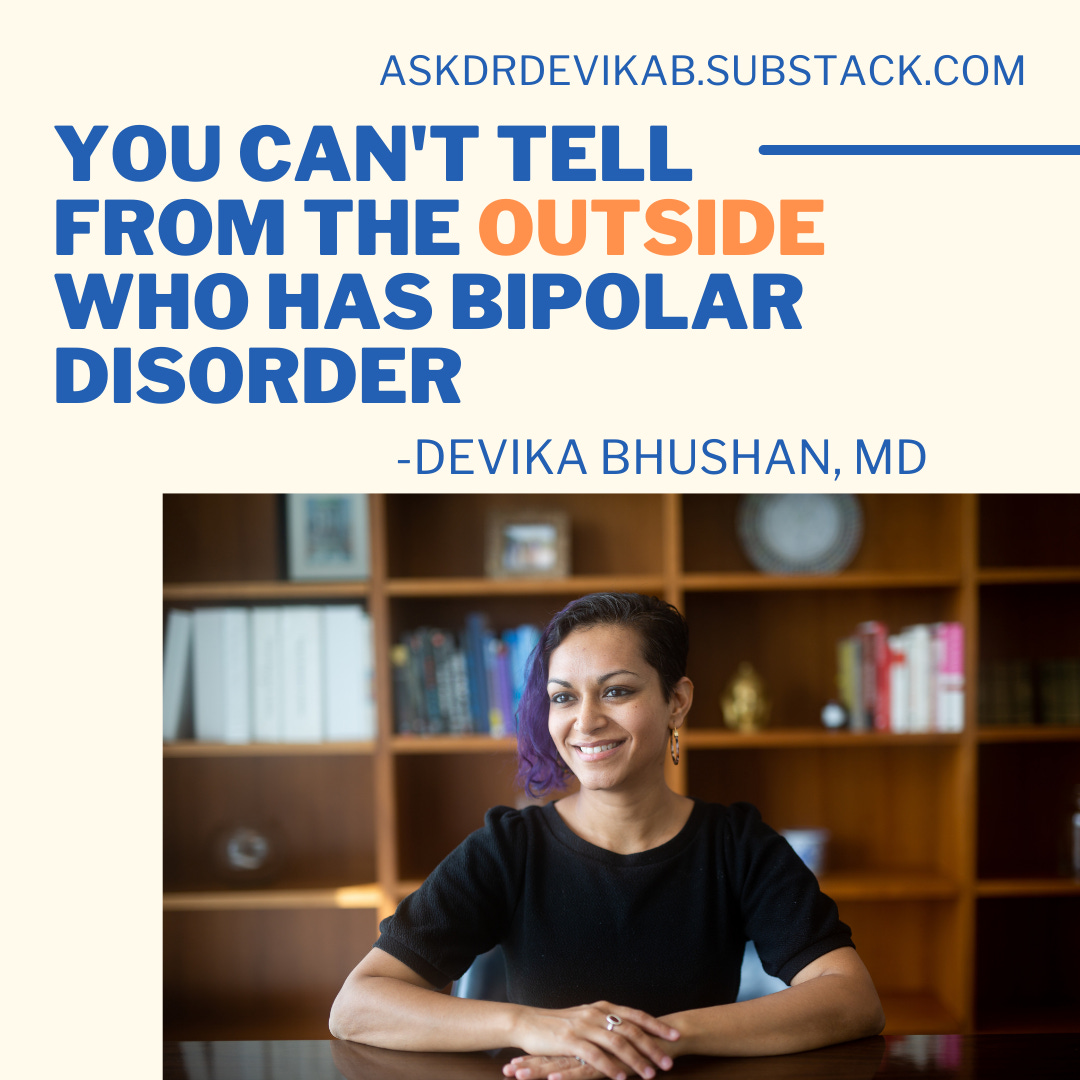
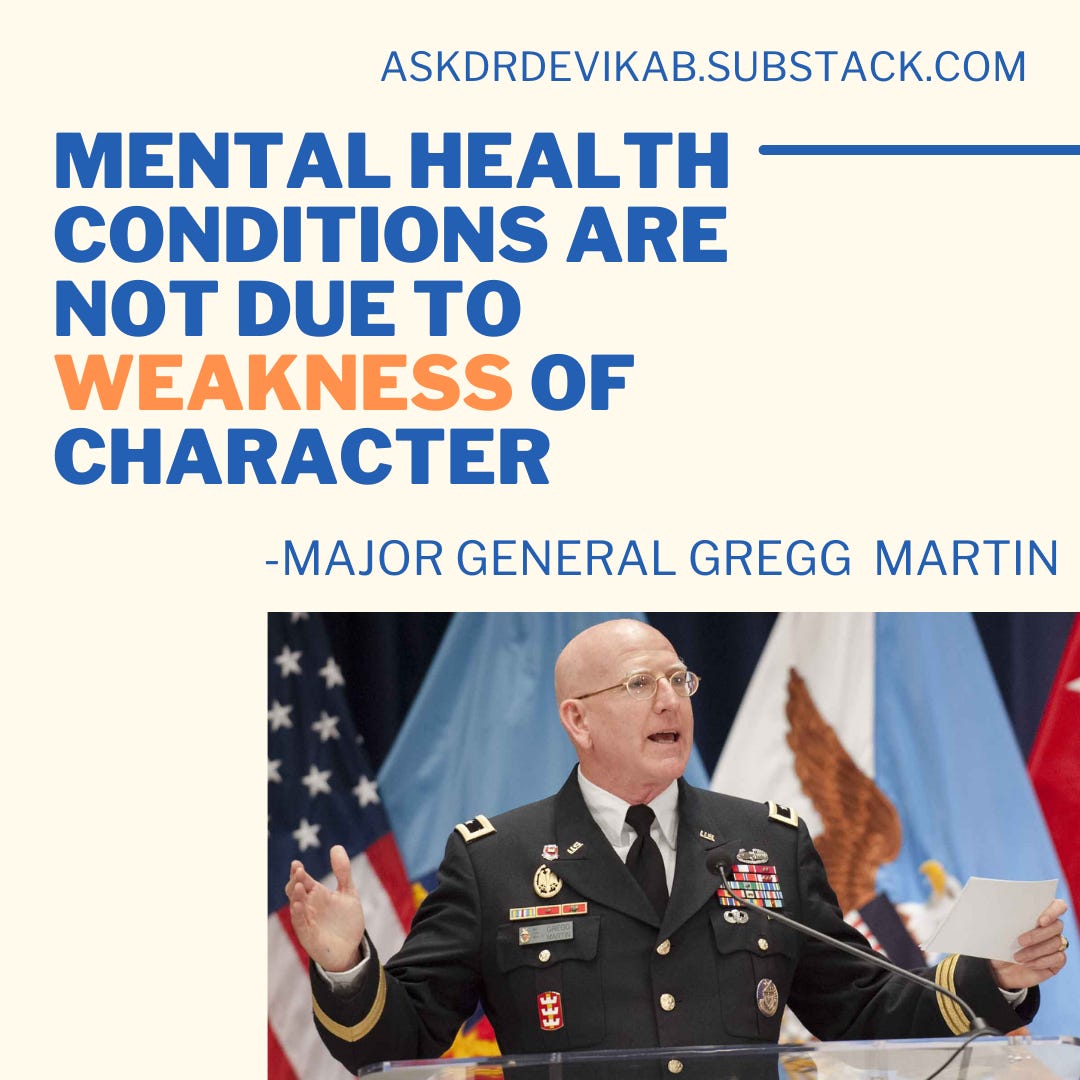
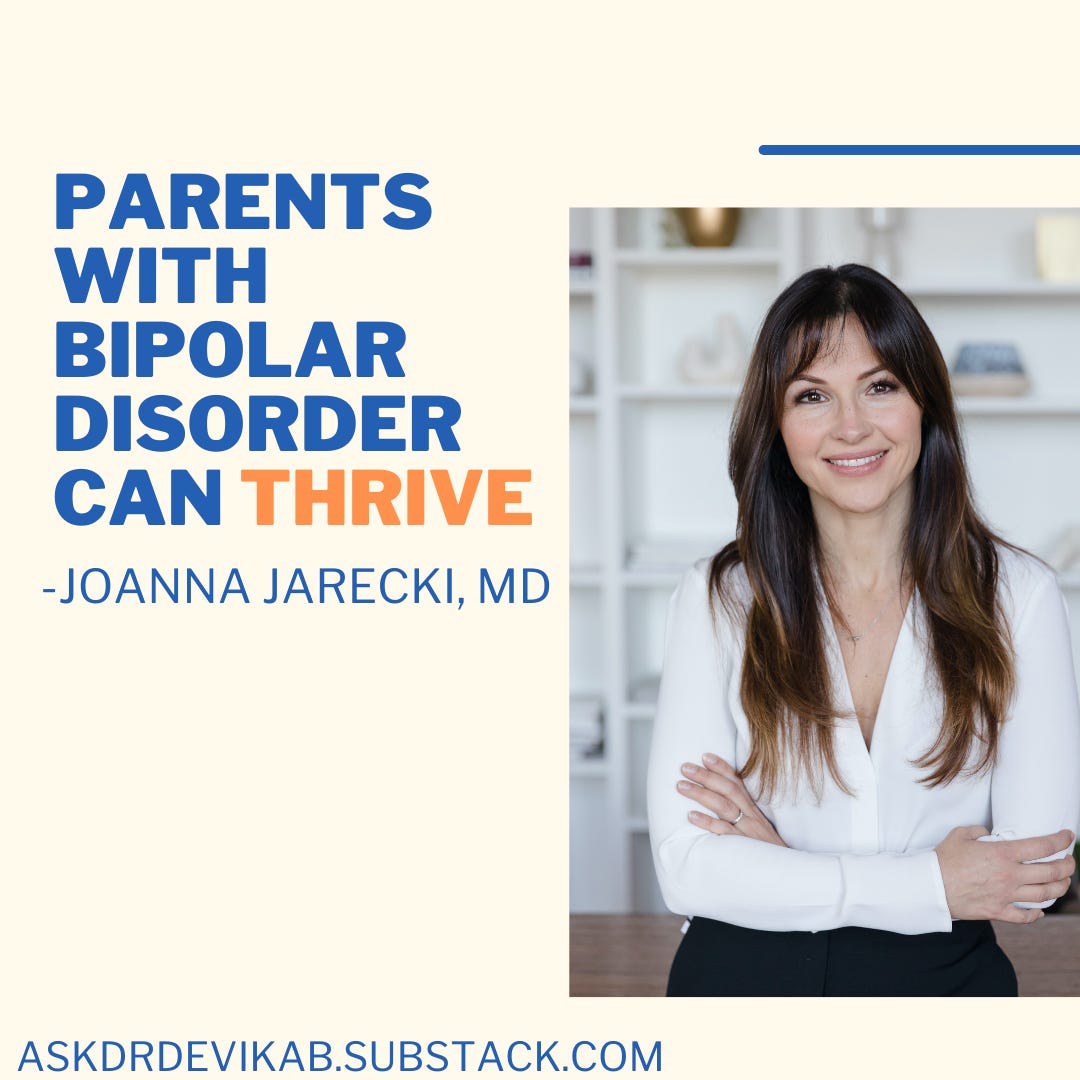
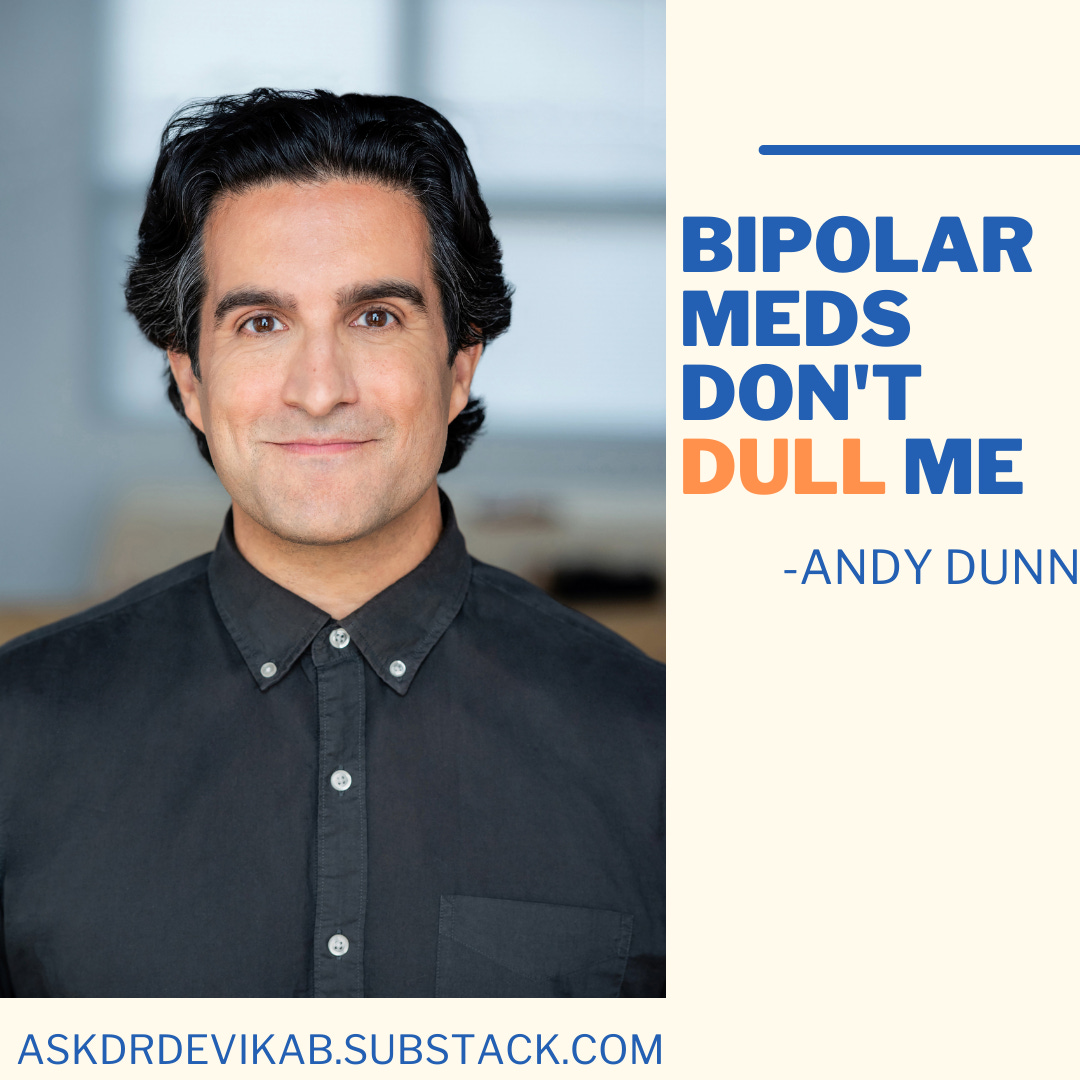
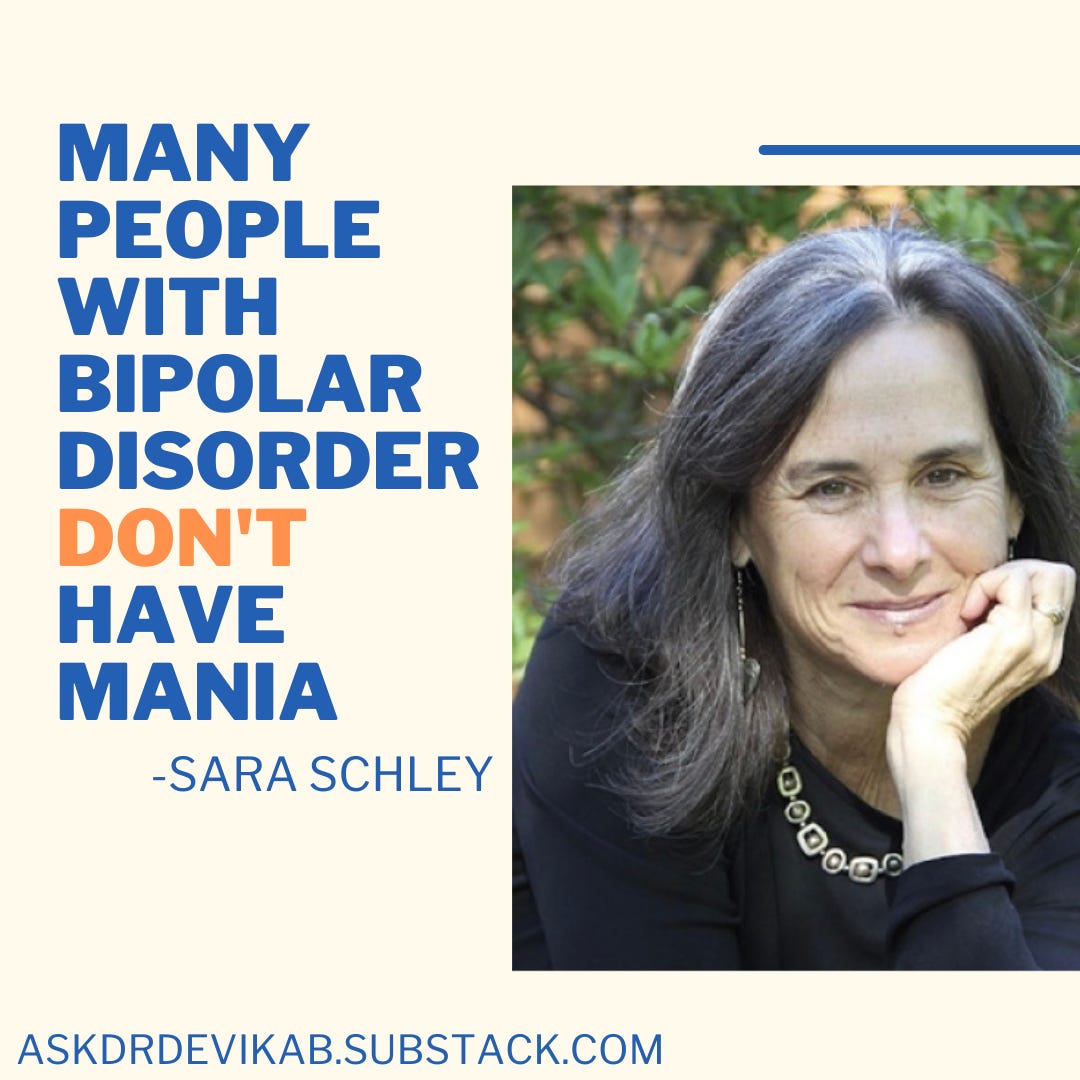
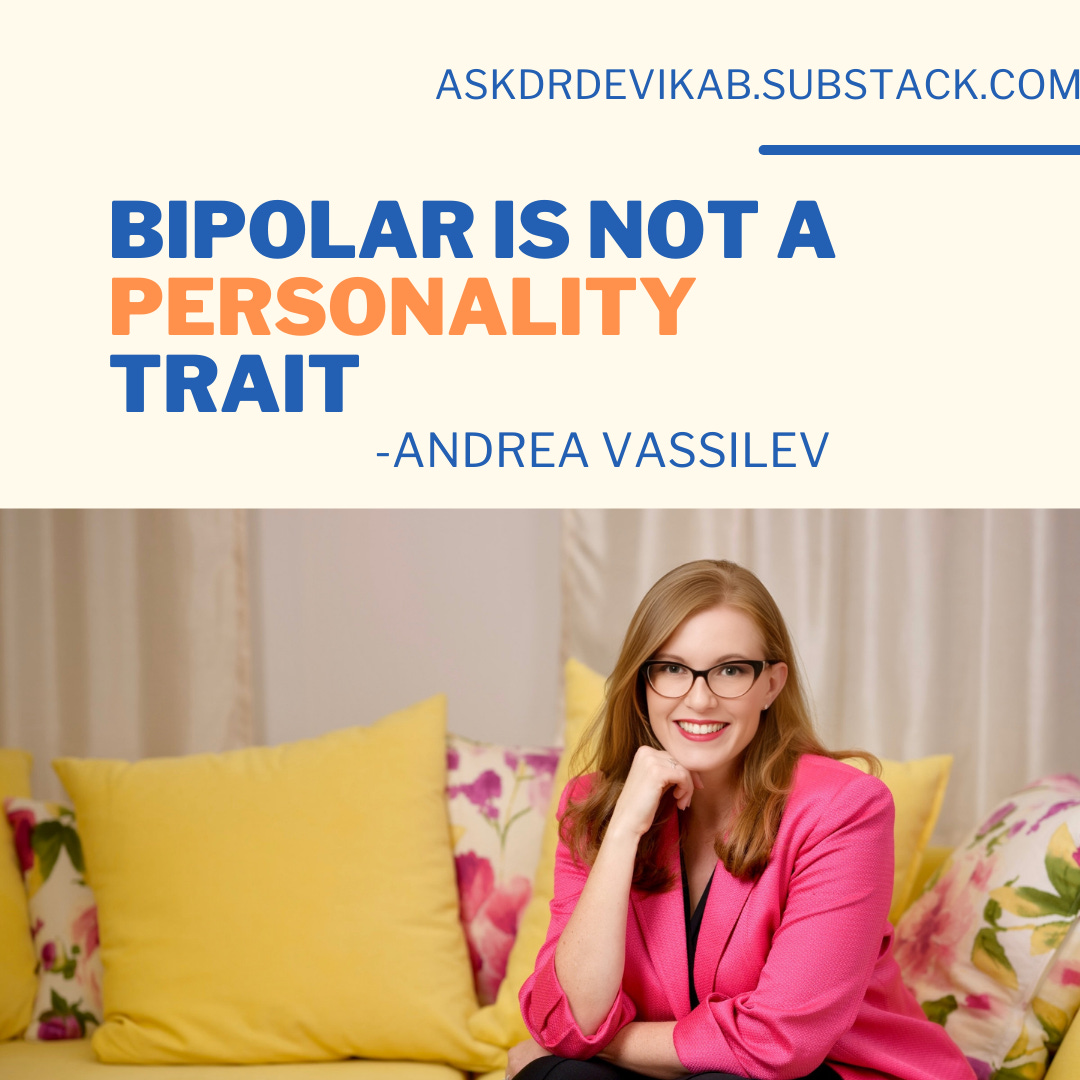












Busting some common bipolar myths on World Bipolar Day